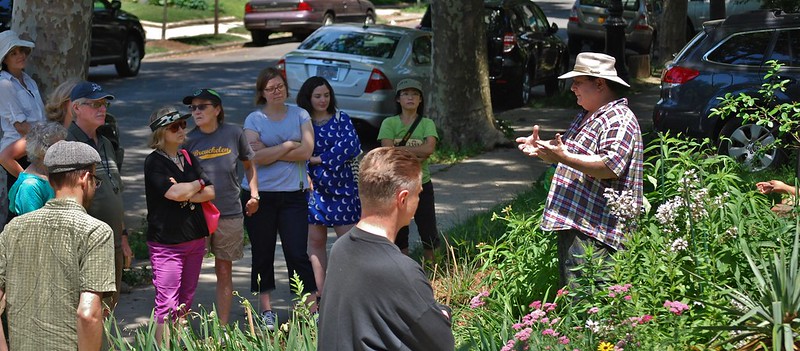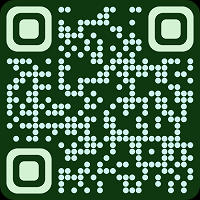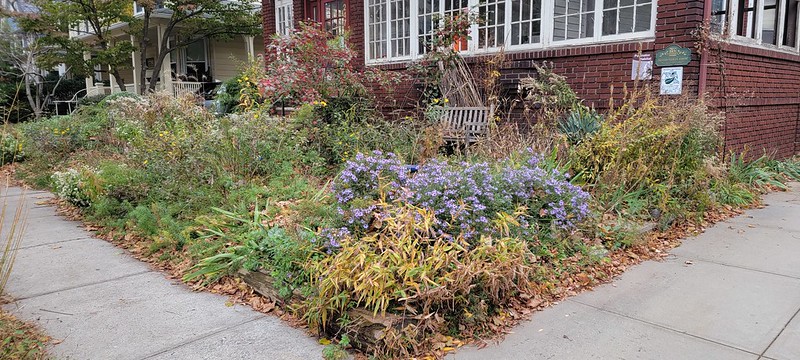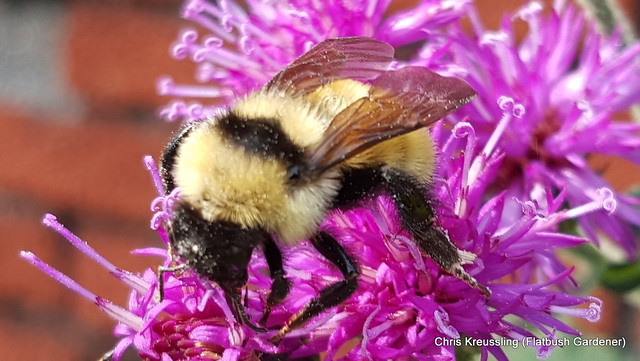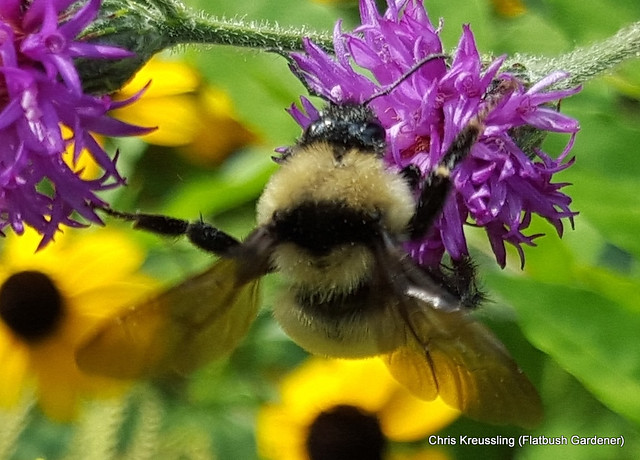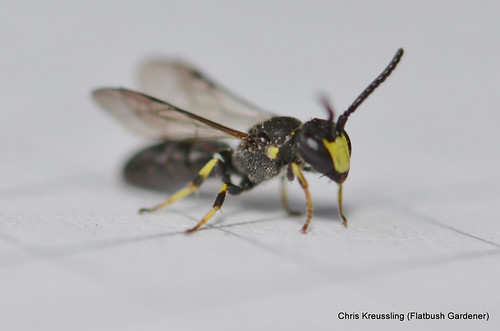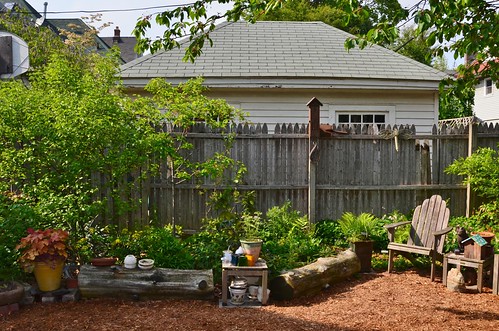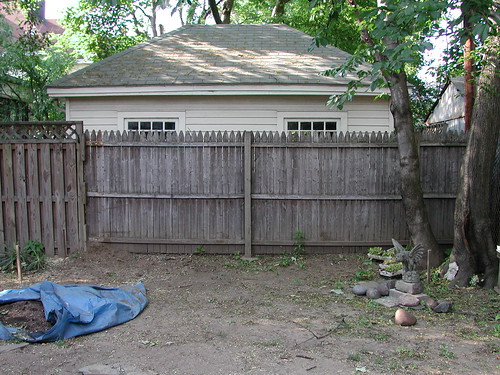The
Great Pollinator Project, a joint effort of the
Greenbelt Native Plant Center and the
Center for Biodiversity and Conservation, is recruiting volunteers for 2009 to record and report observations of native bee species in New York City. They are conducting orientations over the next week from 6-8pm at the following locations:
Brooklyn: Monday, June 8th at Brooklyn Botanic Garden, 1000 Washington Avenue
Staten Island: Tuesday, June 9th at Greenbelt Nature Center, 700 Rockland Avenue
Bronx: Tuesday, June 9th at Van Cortlandt House Museum, Van Cortlandt Park
Queens: Wednesday, June 10th at Alley Pond Environmental Center (APEC) 228-06 Northern Blvd.
Manhattan: Tuesday, June 16th at Central Park, North Meadow Recreation Center (Off of 97th St. Transverse Road)
You can
RSVP online, by emailing beewatchers@gmail.com, or by calling 718-370-9044.
I'll take this opportunity to rant a bit. Honeybees, which we manage both for their products - honey and beeswax - and their service as pollinators, are a single, non-native, species of bee. Colony Collapse Disorder (CCD) has been widely reported for several years and is well-embedded in the public consciousness. Meanwhile, the circumstances of the thousands of bee species native to North America go unreported.
Much has been made of agriculture's dependence on honeybees for pollination. Dire outcomes from the loss of honeybees - widespread crop failures, famine, even human extinction - have been proffered. Perhaps these things would come to pass. However, the underlying cause would not be the loss of honeybees but our dependence on them through unsustainable agricultural practices.
Honeybees are livestock. They are animals which we manage for our uses. We provide them with housing, maintenance, even move them from field to field as we let cows into different pastures for grazing.
Native pollinators will do the job, but only if we leave them a place to live. We clear land for orchards and fields, removing the hedgerows and other "messy" places that had been their home. The monocultures of agriculture are magnified in the deserts of diversity they create. Of course we need to ship domesticated pollinators around (burning fossil fuels in the process); we've eliminated the native pollinators by destroying their habitats. In the process, we've also driven out native predators of plant pests, thereby initating the addictive cycle of pesticides, fertilizers, more and more inputs needed just to tread water on land until our systems collapse around us.
If that should come to pass, just don't blame the bees.
One-third of our food depends on the services of a pollinator—bee or other insect, bird, or mammal. Bees are the most important pollinators in the Northeastern U.S., and there are more than 200 species of bees that live right here in New York City. We need to protect these local pollinators that help keep our parks and green spaces healthy and beautiful, and our farmers’ markets stocked with fresh produce.
In 2007, the Center for Biodiversity and Conservation and the Greenbelt Native Plant Center began the Great Pollinator Project (GPP) in collaboration with the Great Sunflower Project in San Francisco, CA. The goals of the GPP are:
1) identify which areas of New York City have good pollinator service (as determined by how quickly bees show up to pollinate flowers at various locations throughout the city);
2) increase understanding of bee distribution;
3) raise public awareness of native bees; and
4) improve park management and home gardening practices to benefit native bees.
If you are interested in our local pollinators, we need your help!
- The Great Pollinator Project
There are many ways to be a Bee Watcher:
- Observe bee visitation at selected plants that will be distributed at our spring orientations. Conduct your observations in your own garden and submit your data online.
- Become a Mobile Bee Watcher. Conduct your observations on flowers in your neighborhood or at selected bee gardens planted at various locations throughout New York City and submit your data online.
- Bee Watchers
Related Content
Bees, a Mockingbird, and Marriage Equality, 2009-05-22
Cellophane Bees Return, 2009-05-09
Colletes thoracicus (Colletidae), Cellophane Bees, 2008-05-26
Links
Great Pollinator Project
Greenbelt Native Plant Center
Center for Biodiversity and Conservation
